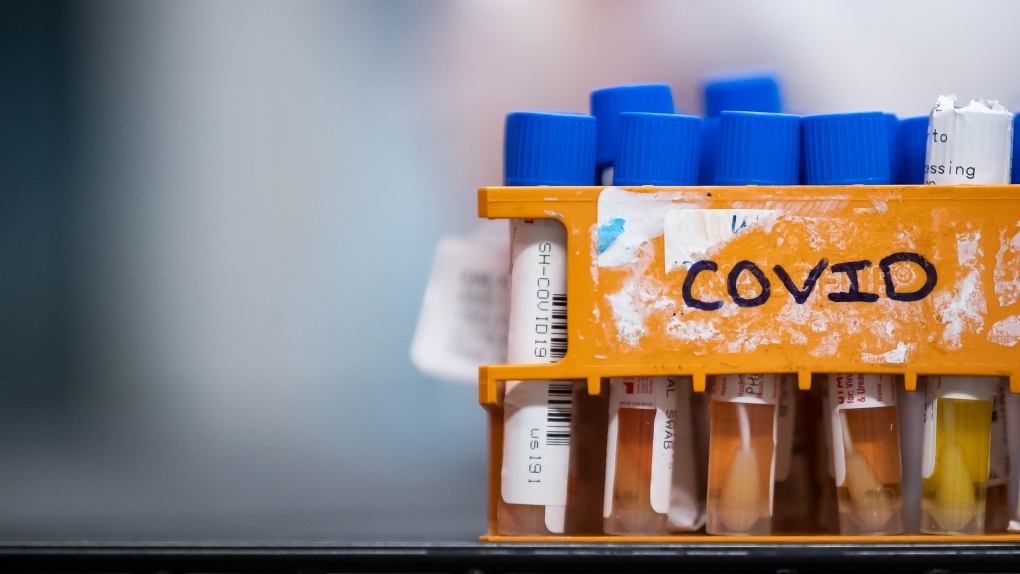Six COVID-19-related deaths reported by MLHU

The Middlesex-London Health Unit (MLHU) is reporting six new deaths Thursday, as the number of patients being treated for COVID-19 at the London Health Sciences Centre (LHSC) rose slightly.
Two of the deaths, a man in his 90s and another in his 60s were associated with a long-term care home. The other four – a man in his 60s, man and woman in their 80s and a women in her 90s were not associated with a seniors' facility.
The Middlesex-London region has now seen a total of 280 COVID-related deaths.
The health unit is also reporting 239 new lab-confirmed cases, 2,589 active, 24,157 resolved and a cumulative total of 27,026.
LHSC meanwhile, is reporting a small uptick in the number of inpatients with COVID-19, rising to 166 from 161 in 24 hours.
The number of patients in adult Critical Care held fell by one to 23 while there are nine patients in Children's Hospital with five or fewer in pediatric Critical Care.
Of those in hospital, 87 are being treated for COVID-19 while another 79 are being treated for other medical needs but have also tested positive. Meanwhile the number of COVID-positive staff continues to decline, dropping to 308 from 311 on Wednesday.
At St. Joseph's Health Care 108 workers are positive along with 45 patients/residents, a slight decline in both totals.
REGIONAL COVID-19 COUNTS
Here are the most recently available numbers from other local public health authorities:
- Elgin-Oxford – 57 new, 846 active, 9,441 total, 8,466 resolved, 129 deaths
- Grey-Bruce – 39 new cases, 248 active, 5,136 total, 4,855 resolved, 28 deaths
- Huron-Perth – 62 new, 1,294 active, 4,621 total, 3,248 resolved, 78 deaths
- Sarnia-Lambton – 114 new, 606 active, 8,113 total, 7,406 resolved, 101 deaths
Across the province, Ontario health officials are reporting 75 more deaths linked to COVID-19 as hospitalizations dropped to 4,061.
CTVNews.ca Top Stories

Expert warns of food consumption habits amid rising prices
A new survey by Dalhousie University's Agri-Food Analytics Lab asked Canadians about their food consumption habits amid rising prices.
opinion The special relationship between King Charles and the Princess of Wales
Royal commentator Afua Hagan writes that when King Charles recently admitted Catherine to the Order of the Companions of Honour, it not only made history, but it reinforced the strong bond between the King and his beloved daughter-in-law.
Charlie Woods, son of Tiger, shoots 81 in U.S. Open qualifier
Charlie Woods failed to advance in a U.S. Open local qualifying event Thursday, shooting a 9-over 81 at Legacy Golf & Tennis Club.
Improve balance and build core strength with this exercise
When it comes to cardiovascular fitness, you may tend to focus on activities that move you forward, such as walking, running and cycling.
B.C. tenants evicted for landlord's use after refusing large rent increase to take over neighbouring suite
Ashley Dickey and her mother rented part of the same Coquitlam duplex in three different decades under three different landlords.
Mountain guide dies after falling into a crevasse in Banff National Park
A man who fell into a crevasse while leading a backcountry ski group deep in the Canadian Rockies has died.
MPP Sarah Jama asked to leave Ontario legislature for wearing keffiyeh
MPP Sarah Jama was asked to leave the Legislative Assembly of Ontario by House Speaker Ted Arnott on Thursday for wearing a keffiyeh, a garment which has been banned at Queen’s Park.
Here's why provinces aren't following Saskatchewan's lead on the carbon tax home heating fight
After Prime Minister Justin Trudeau said the federal government would still send Canada Carbon Rebate cheques to Saskatchewan residents, despite Saskatchewan Premier Scott Moe's decision to stop collecting the carbon tax on natural gas or home heating, questions were raised about whether other provinces would follow suit. CTV News reached out across the country and here's what we found out.
Ex-tabloid publisher testifies he scooped up possibly damaging tales to shield his old friend Trump
As Donald Trump was running for president in 2016, his old friend at the National Enquirer was scooping up potentially damaging stories about the candidate and paying out tens of thousands of dollars to keep them from the public eye.

































